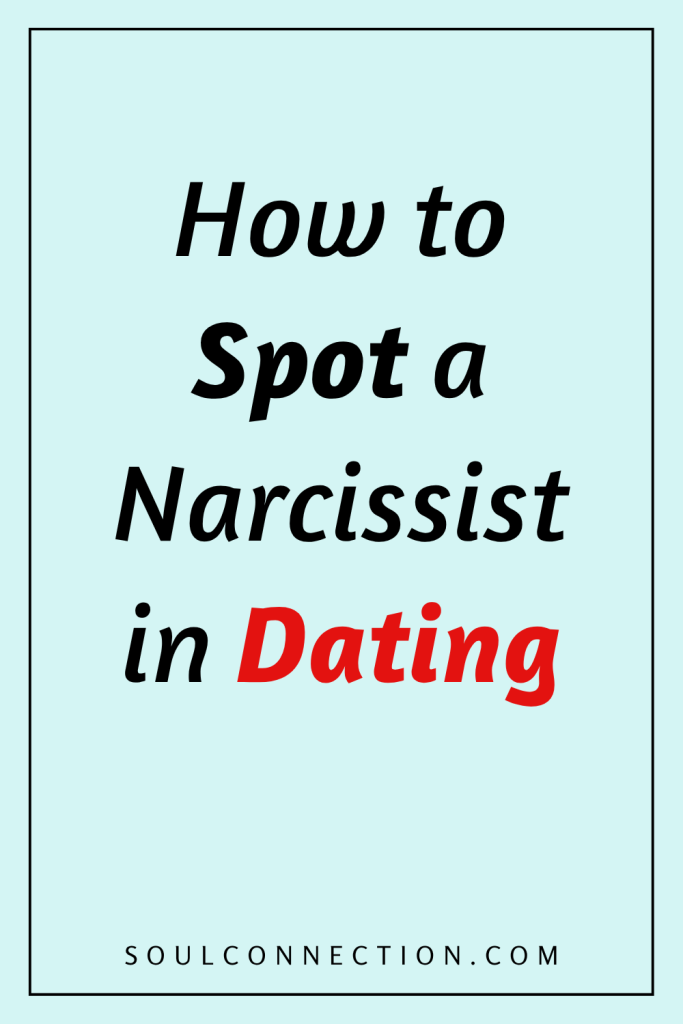So, you’ve matched with someone who’s impossibly charming, dresses like they have a stylist on retainer, and seems to recite their life story with the timing of a Netflix stand-up special.
But something feels just a bit…off. Maybe your gut is screaming louder than your best mate after three espresso martinis.
Welcome to the dating Olympics, where gold medals are handed out for spotting narcissists before you’ve already named your hypothetical children.
If you think narcissists are only found lurking in villain monologues or reality TV confessionals, bad news: their natural habitat is the dating pool. They’re the peacocks strutting around with feathers plucked from everyone else’s achievements.
But how do you distinguish garden-variety confidence from the kind of self-obsession that’ll have you questioning your own reality before dessert? Pull up a chair. It’s time for a crash course.
The Charm Overload at the Start
Remember that date where the compliments flowed faster than the cheap house wine and you felt like the main character in a rom-com montage? That’s the opening act of a narcissist’s Broadway production.
This isn’t just confidence. This is a full-blown, Tony Award–level performance.
Narcissists are experts. Their initial charm is high-octane—think grand gestures, relentless attention, and declarations of “never met anyone like you.” It all feels lovely until you realize you don’t really know anything about them.
All the attention is on you, and somehow none of it feels real. It’s the equivalent of being told you’re the prettiest fish in a tank, only to realize the tank is just a reflection of their own face.
Conversations That Always Find Their Way Back
Try telling them about your day. Or your dog. Or your irrational fear of mayonnaise. Watch as the conversation miraculously shifts back to their latest achievement, drama, or existential crisis.
Like conversational tumbleweed, every topic rolls back into their field.
You could confess you’ve won the Nobel Peace Prize. Give it 30 seconds—they’ll remind you of the time they almost mediated a spat between two pigeons and how nobody appreciates their diplomatic skills.
Everyone likes to share, but narcissists treat every chat like a TED Talk starring themselves, with you relegated to the audience.
The Subtle Art of Gaslighting
Ever walk away from a conversation convinced you’re losing the plot? Maybe you raised a concern, only to have them twist your words, question your memory, or suggest you’re “too sensitive.”
That’s gaslighting—the narcissist’s secret menu item.
One minute you’re discussing boundaries; the next, you’re apologizing for having any in the first place. Their specialty? Making you doubt your own sanity, all while looking as innocent as a nun at Sunday mass.
The Need for Constant Validation
Everyone enjoys a little reassurance. Narcissists, on the other hand, need it like plants need sunlight—if sunlight also left likes and comments. They crave praise, attention, and admiration.
If you’re not quick enough with the compliments, they’ll find someone who is.
Miss a chance to tell them their new shirt looks great? Prepare for sulking, passive-aggressive comments, or a story about how their ex never appreciated them either.
That bottomless pit of need can turn dating into a job you never applied for.
A Shaky Relationship with Empathy
Try sharing your feelings or a rough day at work. They might nod, but their eyes glaze over like you’re reading out your tax return. Empathy isn’t their strong suit.
Sympathy might make a cameo, but it’s usually self-serving—think “I know how you feel, this happened to me too, and it was way worse.”
When you need support, you’re more likely to get a monologue than a hug. If you suspect your emotional needs get lost in translation, pay attention.
Healthy relationships aren’t a one-way street, and you deserve a partner who can actually listen without immediately rehearsing their Oscar speech.
Boundaries Are Suggestions, Not Rules
Narcissists are allergic to boundaries. The word “no” is either ignored, steamrolled, or turned into a guilt trip. Tried to set healthy limits? Watch as they test, prod, or outright ignore them.
Maybe they demand your time, snoop through your phone, or “joke” about your personal preferences until it stops being funny.
If saying “I need space” turns into a dramatic saga, you’re not just being unlucky—you’re dealing with someone who views respect as optional.
The Mysterious Ex Files
Ever notice how every ex of theirs was “crazy,” “toxic,” or “just couldn’t handle” their greatness? Narcissists collect exes like cautionary tales, and the stories always end with them as the misunderstood hero.
Don’t be surprised if you’re warned about people who “got too attached” or “couldn’t appreciate” their quirks. This isn’t about bad luck in love—it’s a red flag that they’re not taking responsibility for their own patterns.
Spoiler: if all their exes are wild, you’re probably about to be cast in the next episode.
Jealousy in Disguise
A little jealousy is human; full-time suspicion is another sport entirely. Narcissists can be wildly possessive, but not out of love. It’s about control.
You text a friend? Cue the third degree. You mention a coworker? Suddenly, you’re on trial.
This isn’t about your actions—it’s about their need to be the sun around which everything orbits. If you’re spending more energy reassuring them than enjoying yourself, it’s time to ask why.
Rule-Bending and Double Standards
Nothing says “narcissist” quite like a set of rules that only apply to you. Cancel plans? Unforgivable. They bail last minute? “Something came up.”
You make a mistake? It’s a capital offense. They mess up? It’s your fault, obviously.
Double standards are their native language. You’ll find yourself walking on eggshells, apologizing for things you didn’t do, and accepting explanations that wouldn’t pass the smell test with a toddler.
The Mask Slips Under Pressure
When things are going well, everything’s sunshine and Instagram stories. But stress? Rejection? Any sign of criticism? Suddenly, the charming mask slips, and you get a glimpse of their less-than-glamorous side.
They lash out, sulk, withdraw, or play the victim. Critique their behavior and the drama level goes from zero to telenovela in seconds.
If your attempts at honest conversations end in emotional chaos, you’re not imagining it.
Love Bombing Goes Boom
Right out the gate, it’s hearts, flowers, and over-the-top romance. You’re swept up in a tidal wave of affection that makes The Bachelor look like amateur hour.
But then, seemingly out of nowhere, the intensity drops. Messages slow. Affection wanes. You’re left wondering what you did wrong.
This isn’t a romance, it’s emotional whiplash. Love bombing is a classic narcissist move—shower you with attention, then withdraw it to keep you off balance.
If you feel like you’re constantly trying to earn back that early affection, it’s not you. It’s the game.
Reluctance to Commit—at Least for Real
Narcissists often talk a big game about the future. Grand plans, “when we move in together,” or “our future kids will be adorable.”
But ask for real commitment or clarity, and the tap-dancing begins. Vague answers. Excuses. Suddenly, they’re “not sure” what they want.
Promises are easy; action is another matter. Watch for a pattern of empty words that never quite materialize into anything solid.
They Play People Off Each Other
Ever find yourself in unspoken competition with their friends, family, or even strangers? Narcissists love stirring the pot. They might mention how “so-and-so really gets me” or compare you to someone else just to keep you guessing.
This isn’t about building healthy relationships—it’s about keeping you on your toes. If you always feel like you’re auditioning for your own relationship, don’t ignore the discomfort.
Your Intuition Is Screaming
The science isn’t complicated: your gut is rarely wrong. Even if everything looks good on paper, if you feel off-balance, anxious, or like you’re walking into an emotional trap, it’s worth listening.
Narcissists specialize in making you question your reality, but your instincts know what’s up. If you’re constantly justifying, excusing, or rationalizing their behavior to yourself or your friends, that’s not normal. And it sure isn’t love.
What to Do Next
Recognizing narcissistic traits doesn’t mean you’re doomed to a life of solo takeout and true crime documentaries. It means you’ve got options.
Start by taking a breath—no, seriously, unclench your jaw—and remind yourself that relationships are about mutual respect, not emotional gymnastics.
Consider how often your needs are ignored, how much of yourself you’re shrinking to fit their mold, and how you feel after spending time together. If the answer to all three is “not great,” it might be time to reevaluate.
Draw boundaries and stick to them like your mum told you to wash behind your ears.
Reach out to friends who aren’t afraid to call you out, or chat with a therapist who can help you sort out what’s real and what’s narcissistic smoke and mirrors.
And if you need to leave, remember: there’s no shame in prioritizing yourself. You’re not being “selfish”—you’re just refusing to be someone else’s supporting character.
You Deserve the Real Thing
Spotting a narcissist isn’t about becoming cynical. It’s about giving yourself a fair shot at genuine connection—and walking away from people who treat relationships like a one-person fan club.
If someone’s true colors clash with your peace of mind, trust your instincts over any smooth talk.
There’s a world of good, flawed, but genuinely loving people out there who are ready to listen, support, and appreciate you—without needing a spotlight. Hold out for the real thing.
And if you ever catch yourself being swept up by a dazzling smile and a pocketful of fairy tales, just give a little wink to your wiser self.
After all, you deserve more than a front-row seat to someone else’s one-man show.


